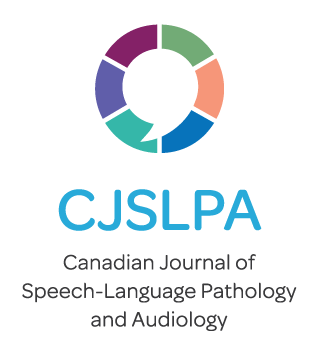

| Author(s) |
Joseph Corcoran, PhD Moira A Stewart, PhD |
| Volume | 19 |
| Number | 2 |
| Year | 1995 |
| Page(s) | 89-96 |
| Language | English |
| Category | |
| Keywords |
stutter therapy qualitative research stutterer |
| Abstract | This qualitative study investigated the experiences of seven adults who stutter. The study focused on what the participants had to say about those experiences which had either been detrimental or beneficial to them in their efforts to modify their stuttering. An initial 60- to 90-minute, semi-structured interview, using open-ended questions and probes, elicited the participants' narratives of their experiences of stuttering. A second 60-minute interview assessed the credibility of the investigators' preliminary interpretations. Understanding the relationship were the primary themes that emerged from the analysis of the transcripts. Participants saw the essence of their success in ameliorating their stuttering as being the increase in their knowledge of the nature of stuttering, and most especially, their deepened understanding of their own experience of stuttering, and their resulting ability to both modify and cope with it more effectively. This process of change took place in the context of nurturing relationships. |
| Record ID | 234 |
| Link | https://cjslpa.ca/files/1995_JSLPA_Vol_19/No_02_75-140/Corcoran_Stewart_JSLPA_1995.pdf |
CJSLPA is an open access journal which means that all articles are available on the Internet to all users immediately upon publication. Users are allowed to read, download, copy, distribute, print, search, or link to the full texts of the articles, or use them for any other lawful purpose.
CJSLPA does not charge authors publication or processing fees.
Copyright of the Canadian Journal of Speech-Language Pathology and Audiology is held by Speech-Language and Audiology Canada (SAC). Appropriate credit must be given (SAC, publication name, article title, volume number, issue number and page number[s]) but not in any way that suggests SAC endorses you or your use of the work. You may not use this work for commercial purposes. You may not alter, transform, or build upon this work.